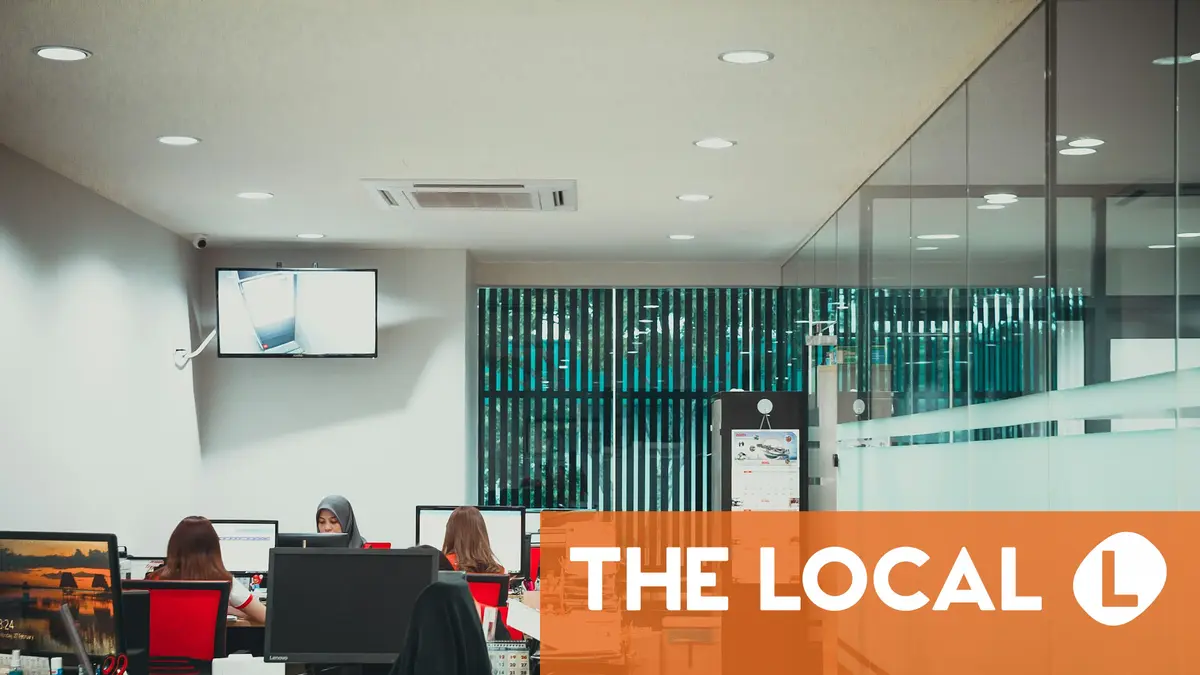We asked people from Muslim countries who live in Denmark about a recent proposal from the Conservative party to make work permits harder to get for people from Muslim majority nations.
Denmark’s Conservative party recently said that it wants work permit rules to be changed to make it harder for people from Muslim countries to come to Denmark to work.
The party wants higher requirements for foreigners from “Menapt” countries – meaning the Middle East, North Africa, Pakistan, and Turkey – to enter the Danish labour market.
Specifically, the Conservatives want a higher wage threshold on job offers for people from these countries, relative to other non-EU countries, for them to qualify for a work permit.
“There’s been a lack of recognition that those who arrive here as much-needed labour can end up becoming an integration challenge,” the party’s political spokesperson, Mette Abildgaard, told newspaper Berlingske in an interview earlier this month.
“We have to be honest and acknowledge that what may be in the short-term interest of businesses is not necessarily in Denmark’s long-term interest,” Abildgaard said.
READ ALSO:
Advertisement
We asked people from Muslim countries who have moved to Denmark for work reasons for their thoughts.
“I don’t see any difference compared to my other foreign colleagues,” a reader from Morocco, who works in marketing in Copenhagen, said in response to our survey.
A reader from Turkey, who also asked not to be named, said that they had moved to Denmark after accepting a job offer as a software engineer.
“Although the immigration process differs for EU citizens, I can only describe my own experience as a Turkish newcomer,” they said.
“From my early days, I noticed that some Danes – often those with limited exposure to other cultures – tend to bundle everyone from the Middle East or Turkey into the same set of stereotypes,” they explained.
“Because Denmark is a small and relatively homogeneous society, it can be harder for those people to recognise the nuance and diversity that exist within other nations,” they also said.
Advertisement
“One example: for an ‘outdoor teambuilding day’ at work, we were told to bring clothes suitable for rain. I dressed accordingly. My HR representative – who might be expected to be especially sensitive – remarked, “You look like a Dane,” as if it were a compliment. The irony is that every item I wore that day, I owned them and used them daily in Turkey,” they said.
This is “not a problem with Danes in general”, they added.
Ahmed, a PhD graduate from Pakistan who works in Aalborg, got in touch to comment on the process of being approved for a work permit.
“The process was very long even though I am a specialist in my domain. I felt that I am being punished for getting a job offer,” he said.
Engineer Muhammad, from Pakistan and currently living in Jutland, said he felt his experience as a person from a ‘Menapt’ country who came to Denmark because of a job offer was not different compared to people from other regions.
“All my employers have been very happy with my work and culture. I do not think that any religious background impedes integration into Danish society or workplaces,” he said.
S. Kasim, who comes from Pakistan and works in the legal sector, said they felt political rhetoric had resulted in a change in public sentiment towards Muslim workers.
Advertisement
“I can’t talk about experiences of others from other countries. I know that I was welcome initially but as the government started the Muslim bashing I saw the changes in the attitudes of the people around me,” they wrote.
Meanwhile, Nazmul from Bangladesh, who lives in Sobørg and works in hospitality, said “I haven’t faced any problem for being a Muslim or practicing my religion in my workplace.”
READ ALSO: Foreign workers in Denmark ‘more likely’ to have substandard working conditions
A number of others also described their experiences joining the Danish labour market as “problem-free” or “fine”.
“I had absolutely no problem integrating with the Danish society. I am learning the language and trying to understand the societal values, the cultural norms, rules, etc,” wrote an Egyptian marketing and communications professional who lives in Copenhagen.
“In many ways, I am more aligned with the societal values here, such as equality and freedom of speech, than I was in my home country,” they said.
“It’s harder to make Danish friends for sure, but I’ve heard the same from European expats, too. Perhaps what’s challenging is the stereotypes many people have about expats coming from the Middle East,” they said, adding that “we’re much more diverse in reality.”
‘T’, a student from Bangladesh who currently lives in Copenhagen and works part time as a housekeeper, said they had “not faced any difficulties” in the workplace, although “some old people are racist towards women wearing the hijab.”
Although she has a degree in economics, Abir from Bangladesh said she is currently working in Denmark as a cleaning assistant.
“I did not feel any racism face to face, but it was hard to get a job (but) that’s because I don’t know Danish yet,” Abir wrote.
